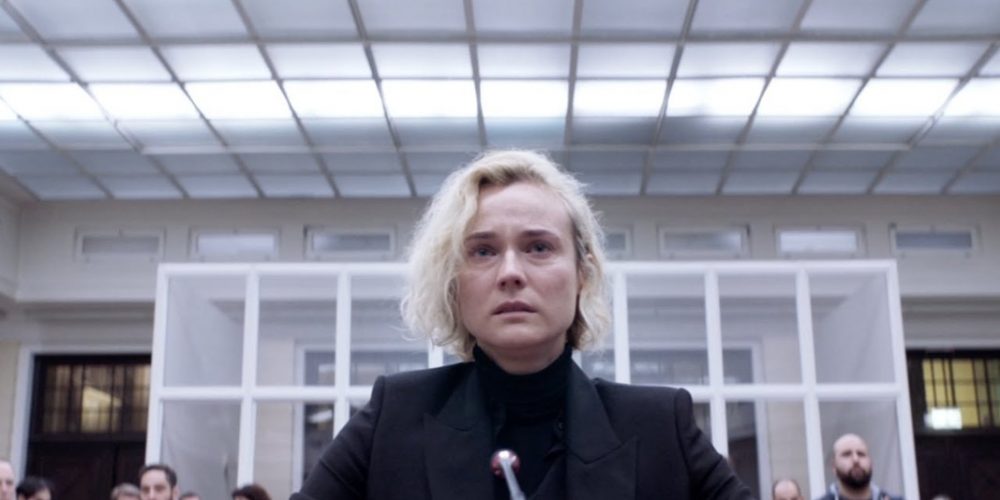Winner of the Golden Globe for best foreign-language film, In the Fade, by the Turkish-German director Fatih Akın, is one of the more important new political films on the state of Germany today.
It is loosely based on the NSU (National Socialist Underground—i.e. fascist) trials, which were concluded this summer after dragging on for over five years. On trial was a group of neo-Nazis who had randomly killed nine people with a migrant background and also a policewoman. Undercover police were involved to the point of colluding with the killers.
The most notorious of the neo-Nazis, and the person on whom the trial concentrated, is Beate Zschäpe. Two of her accomplices had died in the meantime. Only Zschäpe received a life sentence.
Akın pares down the actual events and the trial to make his point. He creates a plot around one family, the assumptions of the police, and the mechanisms of the court. Diane Krüger excels in her role as the victim’s widow seeking justice. Connections between the German fascists and the Golden Dawn party in Greece represent a growing network of right-wing extremism in Europe. The film is alarmingly relevant.
Where it falls behind real life is that things are even worse in reality. The film stops short of showing undercover state involvement, and the failure of the legal system to bring this to light at the trial. Another question that arises, as we see the terrifying increase in the neo-Nazi presence on the streets and in the parliament of Germany, is, How is this rise of fascism possible again? Where does it come from? How can it infiltrate society once again? Why is it not stopped? How can it be stopped?
The film offers no answers to these questions. But it is a cinematic contribution to such a discussion and stirs viewers to think about racism and fascism and highlights the acute need for action to stop this.
- In the Fade has just been released in its English version on DVD.






